Is Pope Francis revolutionizing the Catholic Church — or just ad libbing?
The perils of being a chatty, slippery pope

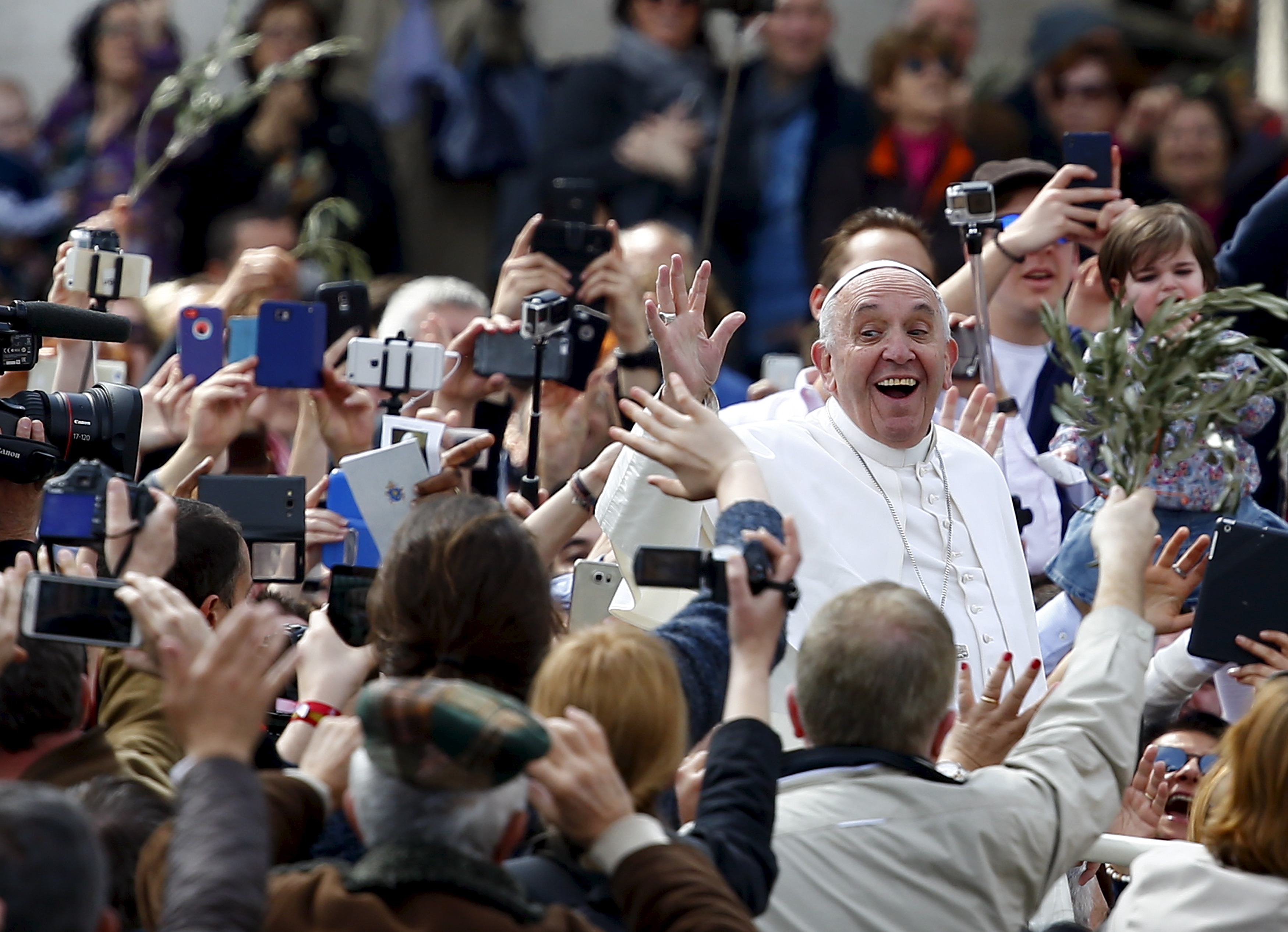
"There he goes again."
That's what some of my Catholic friends have taken to saying every time Pope Francis makes a statement — usually off the cuff in a public forum — that appears to break from or raise significant, perplexing questions about some aspect of church teaching.
Such declamations are becoming more frequent.
The Week
Escape your echo chamber. Get the facts behind the news, plus analysis from multiple perspectives.

Sign up for The Week's Free Newsletters
From our morning news briefing to a weekly Good News Newsletter, get the best of The Week delivered directly to your inbox.
From our morning news briefing to a weekly Good News Newsletter, get the best of The Week delivered directly to your inbox.
Less than two weeks ago, the pope stated that because the West is dominated by a "culture of the provisional," the "great majority" of Catholic marriages are "null" — meaning nonexistent. They never happened. At the same time, Francis also observed that a great number of romantic relationships in which unmarried couples cohabitate display "a lot of fidelity," which makes them "a real marriage."
In sum: The pope appears to think that most marriages are not marriages and that many non-marriages are marriages.
And of course, there was that time on a transatlantic flight early on in his pontificate that the pope made his surprisingly laditudinarian statement about homosexuality: "Who am I to judge?" (To which many conservative Catholics replied, "You're the friggin' pope, that's who!")
Well, now the pope has done it again, reviving one of his dearest hobbies: speaking extemporaneously to the press while traveling on the papal plane. On Sunday, Francis returned to this topic in the skies somewhere between Armenia and Rome. In the midst of what The New York Times describes as "an hourlong freewheeling conversation that has become a trademark of his international travels," Francis was asked by a reporter "if he agreed with recent comments by a Roman Catholic cardinal from Germany that the church should apologize to gays and if an apology was made more urgent by the killing of 49 people at a gay club in Florida this month."
A free daily email with the biggest news stories of the day – and the best features from TheWeek.com
Francis' response? "We Christians have to apologize for so many things, not just for this [treatment of gays], but we must ask for forgiveness, not just apologize. Forgiveness — Lord, it is a word we forget so often." The Times goes on: "Then he added that he thought the church should apologize not only to gay people it had offended, but also to the poor, to women who have been exploited, and to children who have been exploited by being forced to work."
Let's just focus on the issue of a possible apology to, and request for forgiveness from, homosexuals.
If what the pope means is that individual Christians have often treated gays badly, subjecting them to violence, overt discrimination, and abuse, and shown an egregious lack of charity toward them for pretty much the entirety of the past 2,000 years, that is indisputable — as is the contention that an apology for such mistreatment is in order.
But if Francis means that the Roman Catholic Church as an institution owes gays an apology — well, that raises some unsettling issues.
For one thing, the church's official teaching is that when homosexual desires are acted upon, they are always and everywhere gravely immoral, innately sinful, and "objectively disordered." (Natural law holds that the only objectively ordered act of sexual intercourse is a procreative act between a man and woman bonded in marriage.)
Not only does this mean that the church cannot bless same-sex marriages. It also means that no act of homosexual intercourse is ever acceptable. In order to conform to church teaching, a gay man or woman must embrace celibacy — meaning, he or she must forever renounce any hope of sexual fulfillment or companionship. Because, once again, acting on homosexual desires is always and everywhere gravely immoral, innately sinful, and "objectively disordered."
Pope Francis' suggestion of an apology to gays raises the question of whether he thinks it would be possible for the church to make such an expression of contrition while continuing to affirm and teach this view of homosexuality. I'm just going to go out on a limb and speculate that such an apology would not be especially well received in the gay community.
The closest analogy might be to the church's attitude toward Jews.
In 1994, Pope John Paul II issued a statement ("We Remember: A Reflection on the Shoah") that expressed regret for the role that Christians played in the Holocaust. He apologized. But the document did not arise in the vacuum. On the contrary, it built on and followed on a series of (individually modest but collectively monumental) reforms in church teaching that began in the 1950s and culminated in Nostra aetate, the Vatican II document that rejected the view that the Jewish people (collectively or individually) are responsible for the death of Jesus Christ.
First the teaching changed. Then the pope expressed contrition.
Is Pope Francis implying that, in addition to his already completed effort to soften the church's strictures against divorced and remarried Catholics receiving the sacrament of communion, and his ongoing push for a reform of church teaching on just war and the death penalty, he will soon begin agitating to change the church's doctrine about the objectively disordered character of gay sexuality?
Or is he instead just ad libbing — saying the morally decent thing in response to a question without first thinking through its doctrinal implications and its prospect for sowing chaos and confusion over precisely where the church stands on this deeply divisive issue?
I suspect it's the latter. But as usual with this supremely pastoral and doctrinally slippery pope, it's impossible to say for sure.
Damon Linker is a senior correspondent at TheWeek.com. He is also a former contributing editor at The New Republic and the author of The Theocons and The Religious Test.
-
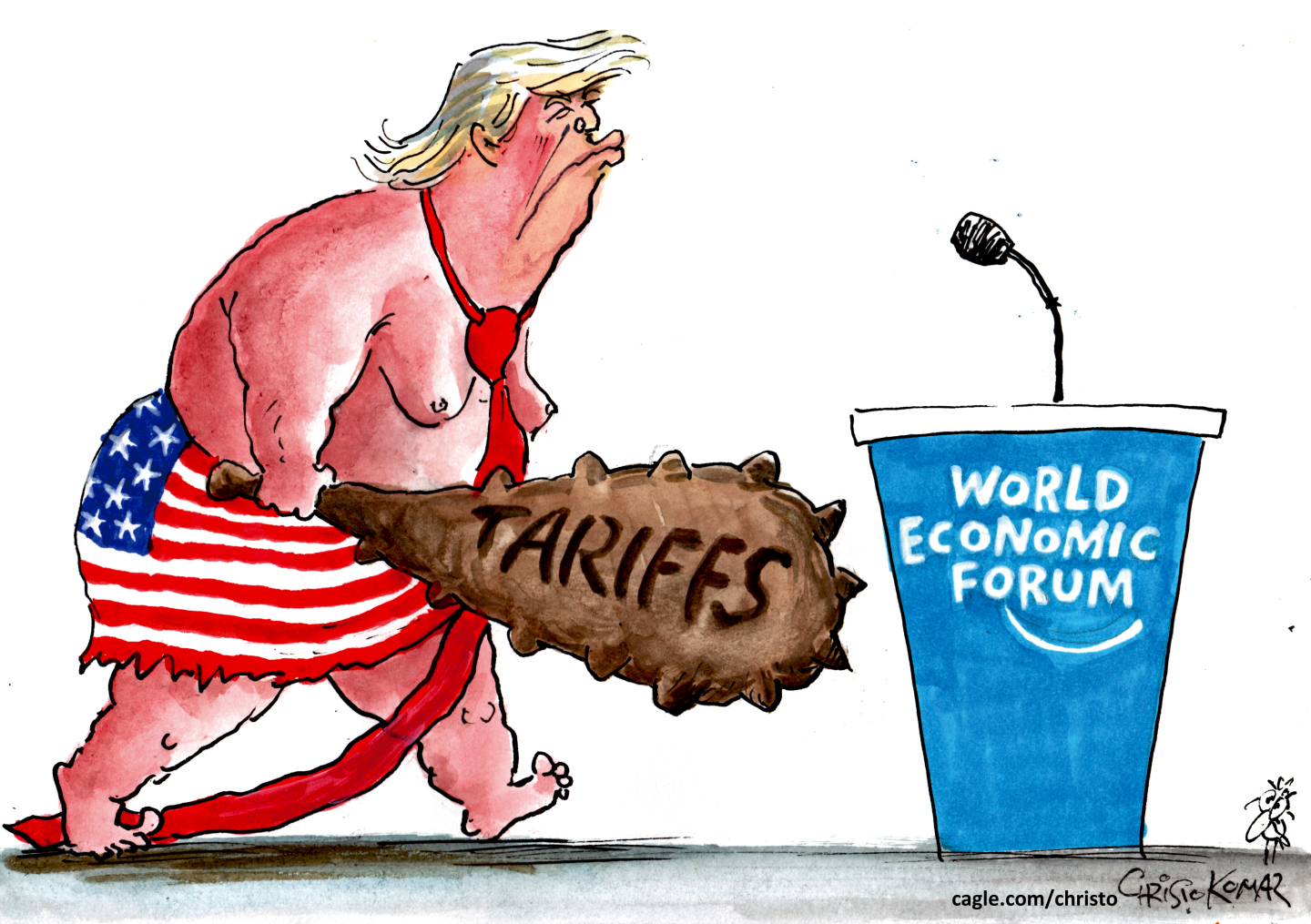 5 contentious cartoons about Donald Trump at Davos
5 contentious cartoons about Donald Trump at DavosCartoons Artists take on weaponized tariffs, a cheeky offering, and more
-
 Trump’s ‘Board of Peace’ comes into confounding focus
Trump’s ‘Board of Peace’ comes into confounding focusIn the Spotlight What began as a plan to redevelop the Gaza Strip is quickly emerging as a new lever of global power for a president intent on upending the standing world order
-
 ‘It’s good for the animals, their humans — and the veterinarians themselves’
‘It’s good for the animals, their humans — and the veterinarians themselves’Instant Opinion Opinion, comment and editorials of the day
-
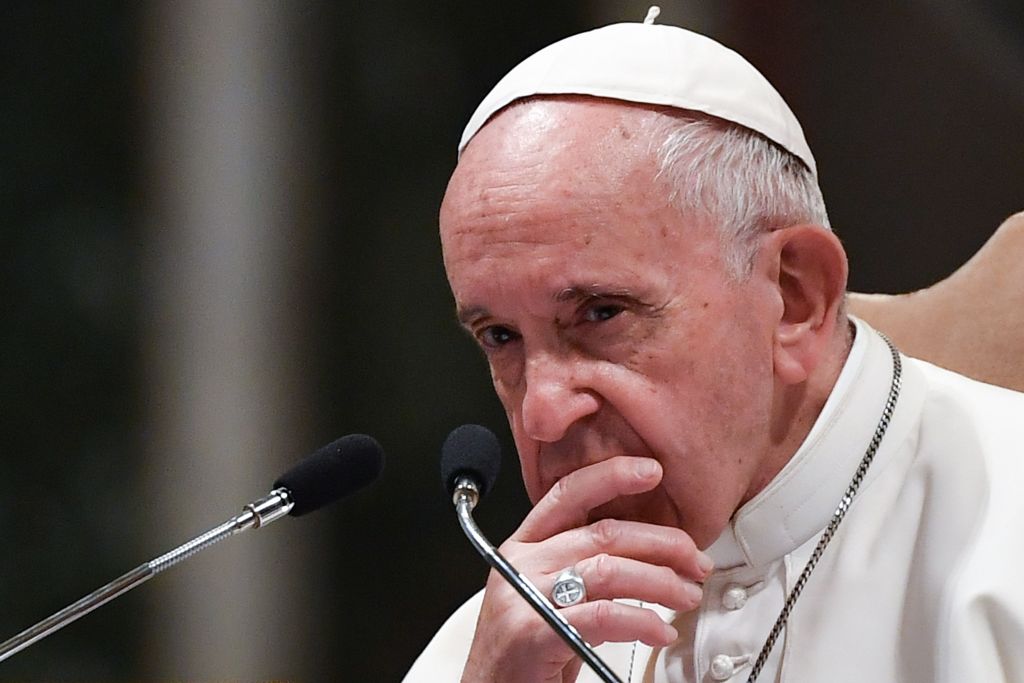 Pope Francis speaks about sex abuse scandals, Trump, and his conservatism
Pope Francis speaks about sex abuse scandals, Trump, and his conservatismSpeed Read
-
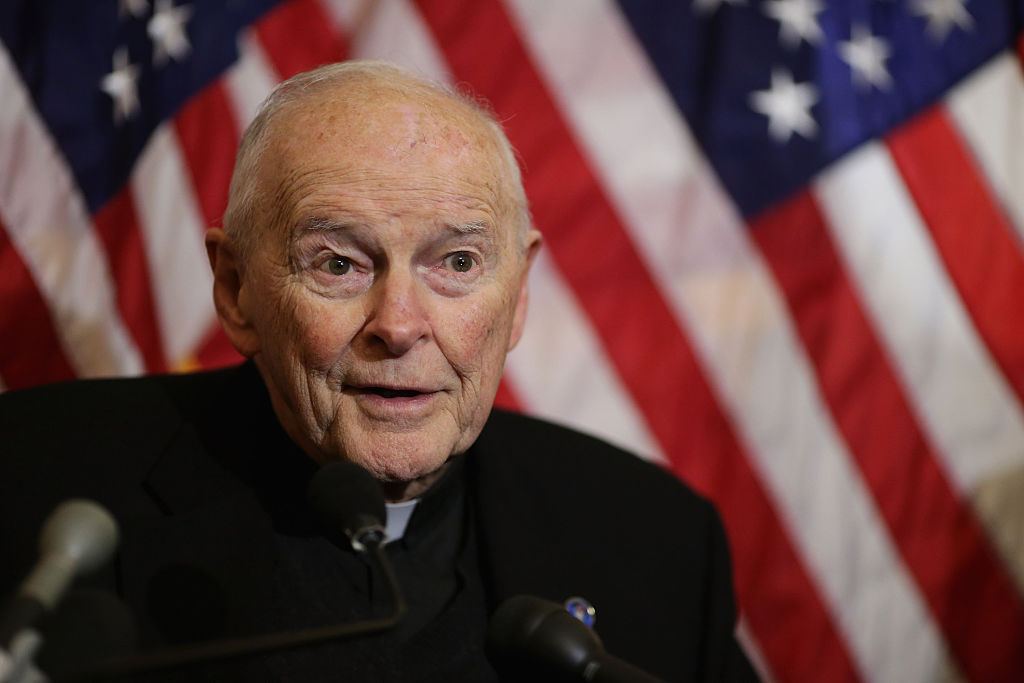 Pope Francis makes unprecedented decision in defrocking Theodore McCarrick
Pope Francis makes unprecedented decision in defrocking Theodore McCarrickSpeed Read
-
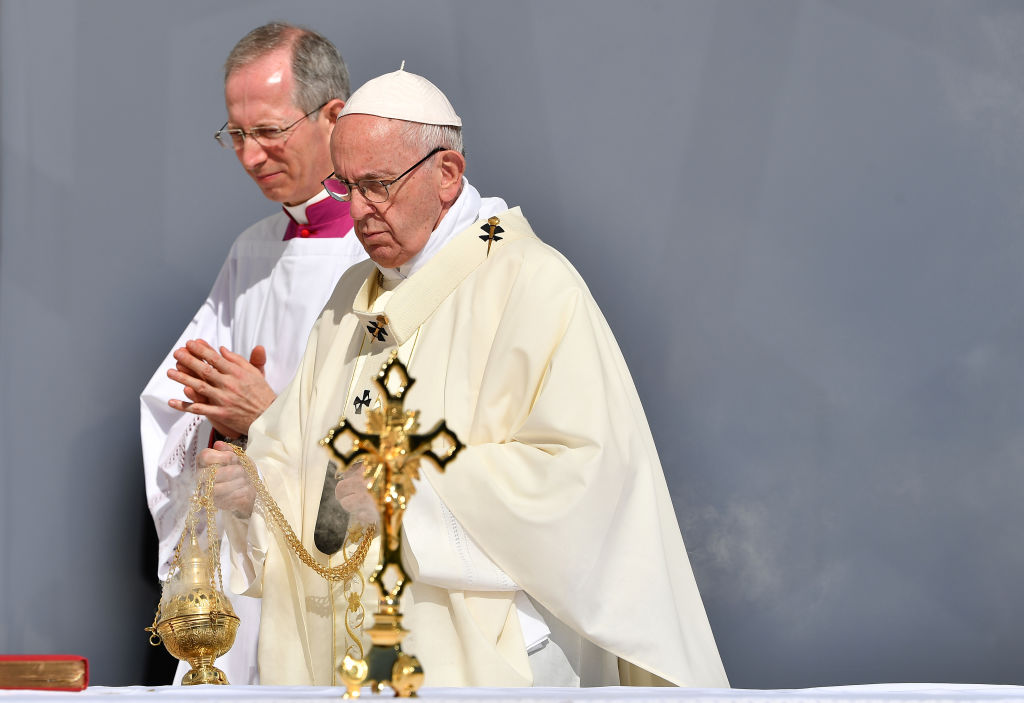 For the first time, Pope Francis publicly admits priests and bishops have sexually abused nuns
For the first time, Pope Francis publicly admits priests and bishops have sexually abused nunsSpeed Read
-
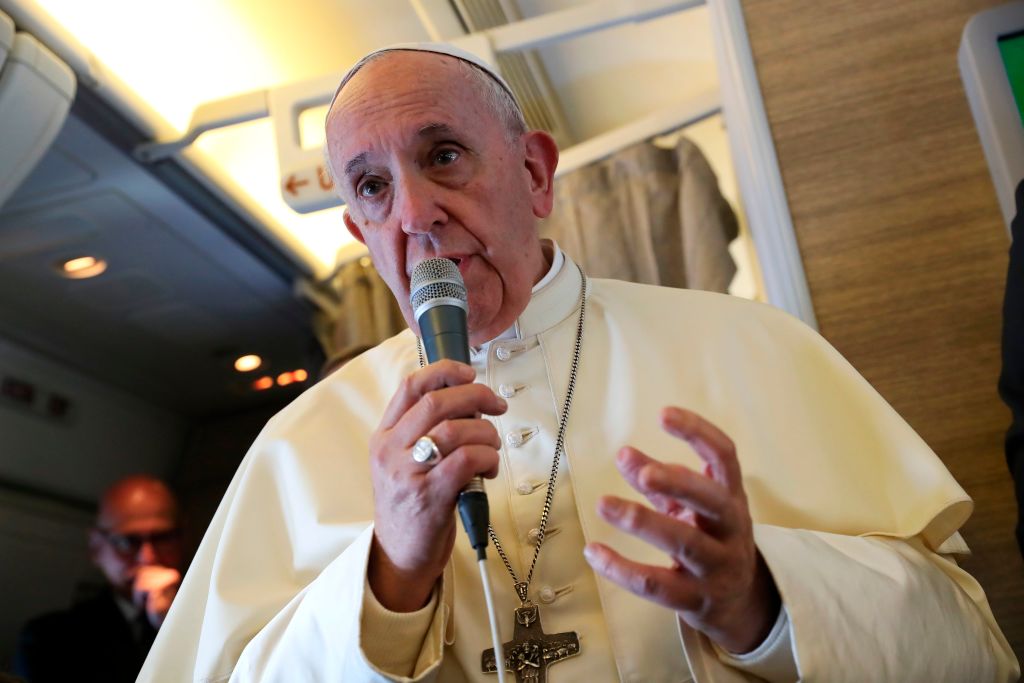 Pope Francis calls for peace in Yemen
Pope Francis calls for peace in YemenSpeed Read
-
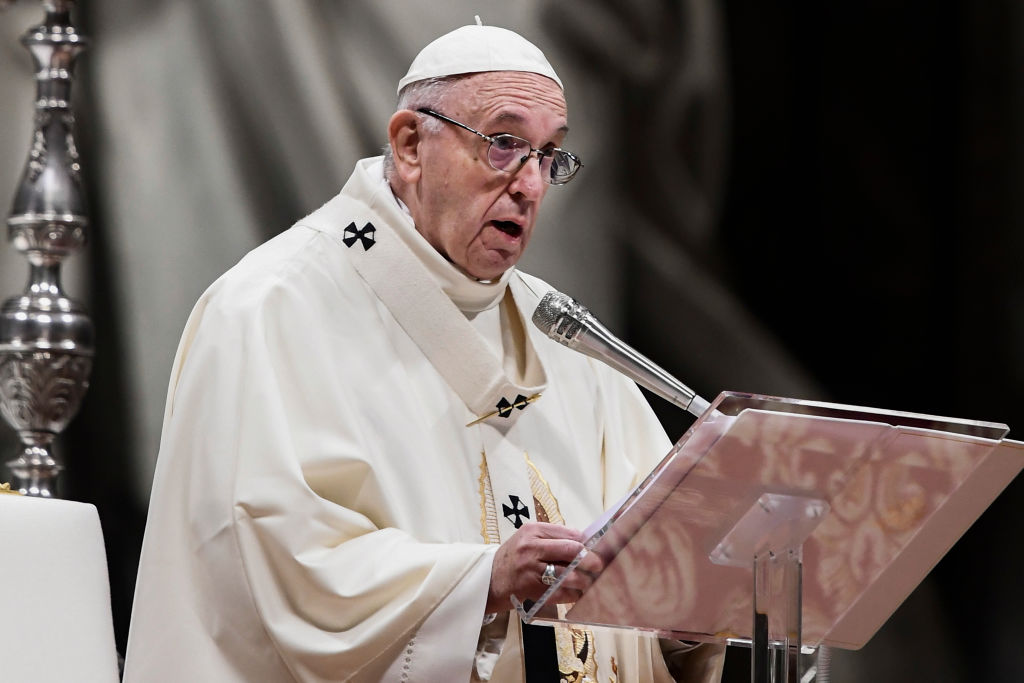 Pope Francis to abusive priests: 'Hand yourself over to human justice'
Pope Francis to abusive priests: 'Hand yourself over to human justice'Speed Read
-
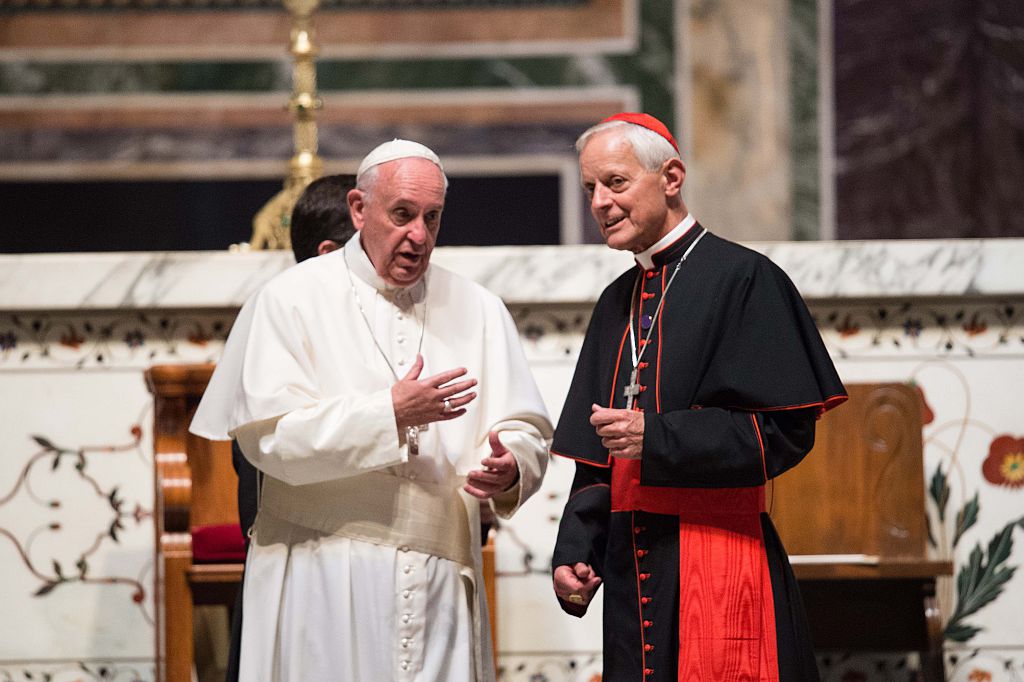 Pope Francis accepts resignation of embattled Washington Archbishop Donald Wuerl
Pope Francis accepts resignation of embattled Washington Archbishop Donald WuerlSpeed Read
-
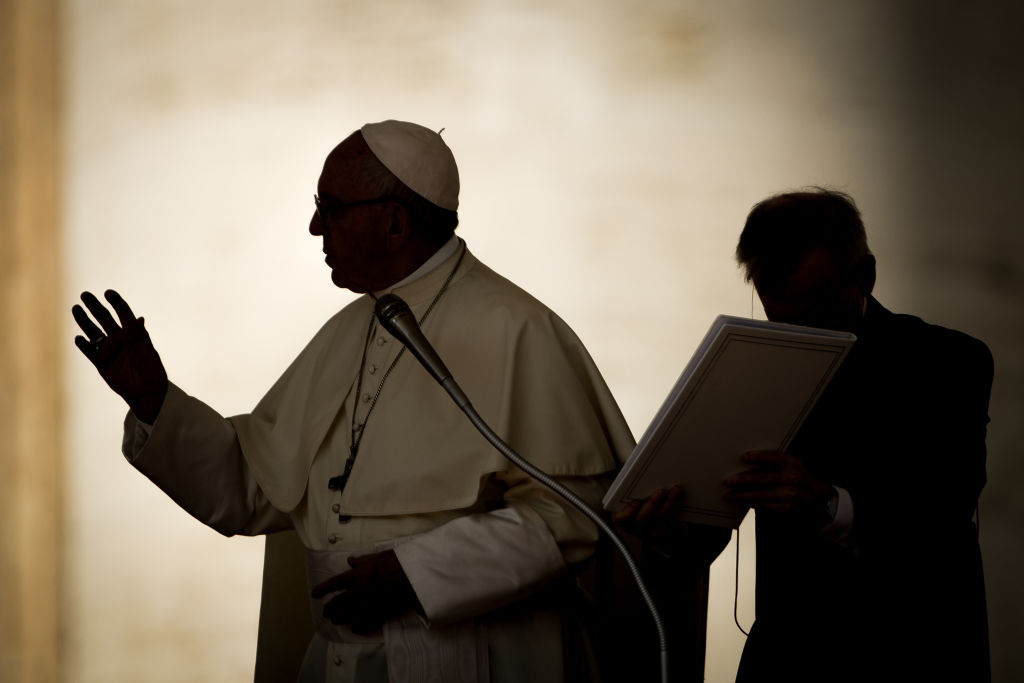 Pope Francis defrocks Chilean priest over sex abuse scandal
Pope Francis defrocks Chilean priest over sex abuse scandalSpeed Read
-
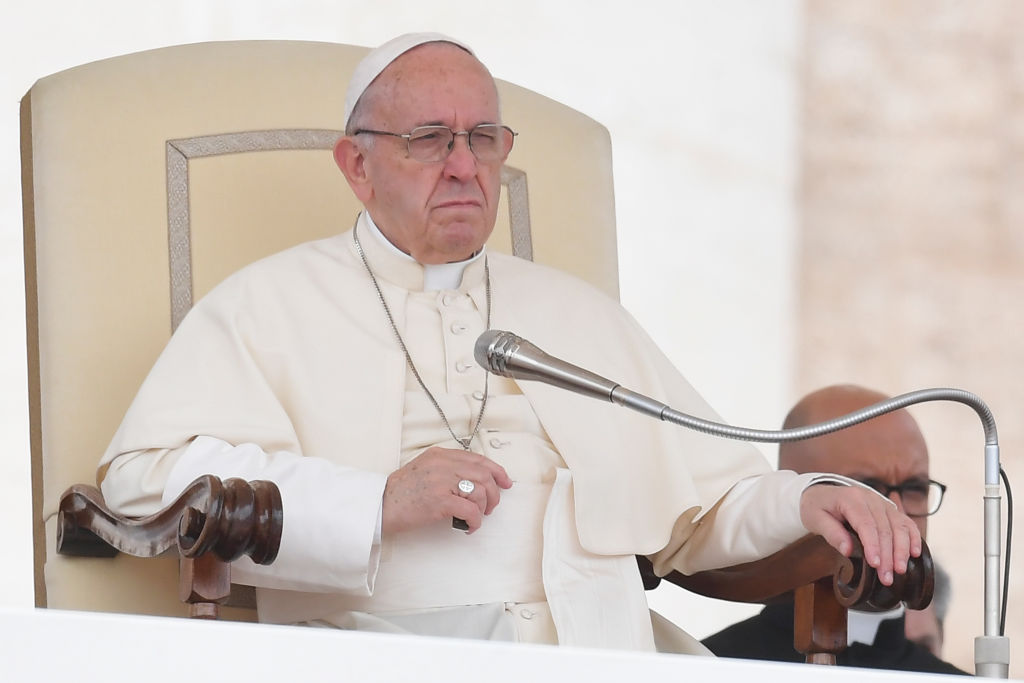 Pope Francis will meet with U.S. church leaders over clergy abuse
Pope Francis will meet with U.S. church leaders over clergy abuseSpeed Read
